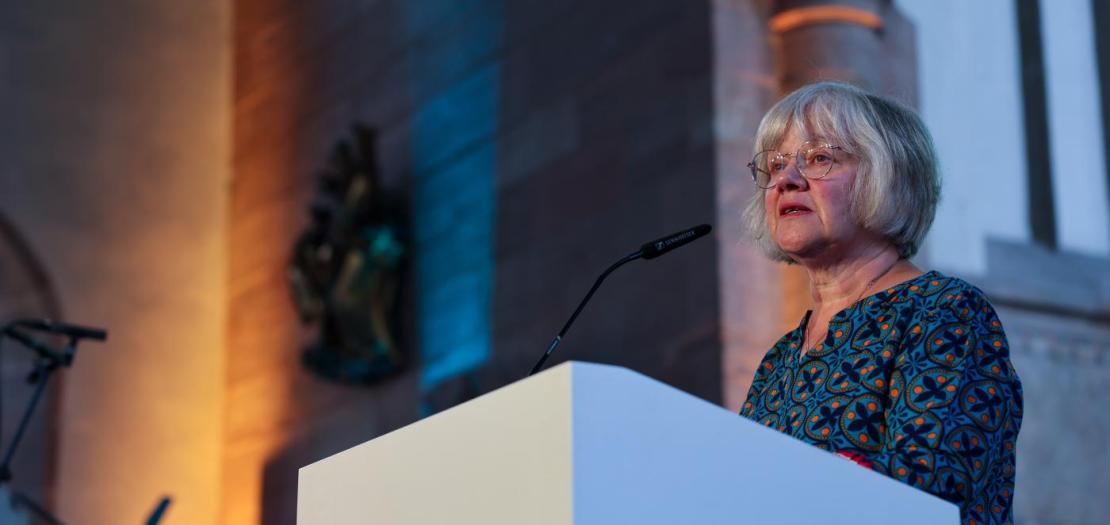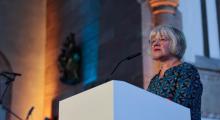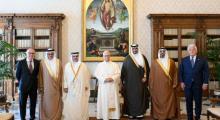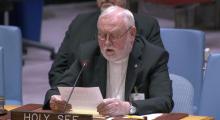Issued by the Catholic Center for Studies and Media - Jordan. Editor-in-chief Fr. Rif'at Bader - موقع أبونا abouna.org

Rev. Dr Susan Durber, WCC president for the Europe region
“Today, we are more likely to pray together, to befriend each other, and to work together to promote a joint witness to governments and people,” she acknowledged. “Undoubtedly, some bishops were not above making use of friendship with the emperor to get the result they wanted.”
But, even in such a climate, Durber said, there were those who committed time, energy, and their reputations to the search for a real and deep unity that would last. “There was much at stake,” she said. “The enmity between different groups needed healing.”
The bishops at Nicaea had a particular kind of imperative for unity, Durber noted.
“The opening statement of the creed of Nicaea is about the oneness of God,” she pointed out. “This marks an absolute break from the Roman religious world.”
Durber shared that looking at Nicaea has revived within her a sense of the scandal and the risks of disunity. “It has stirred up in me a sense again of sorrow that in so many centres of population in our world today there is more than one Christian community, and that our witness is divided,” she said. “And not just because I like people to be friendly but because unity – union, communion, solidarity, is the heart of the faith.”







